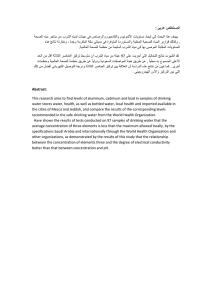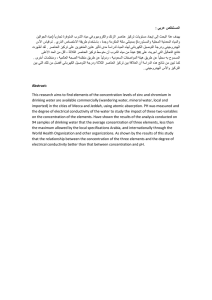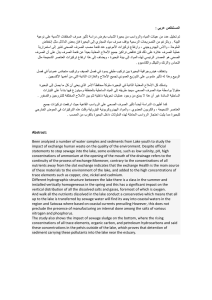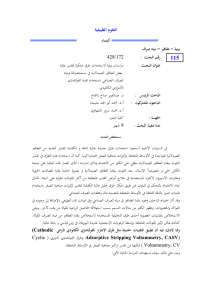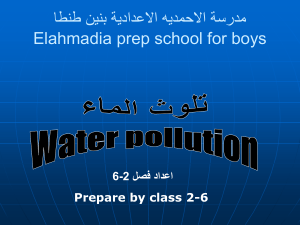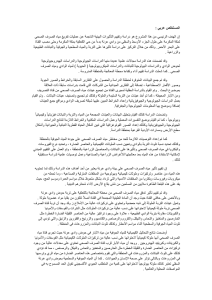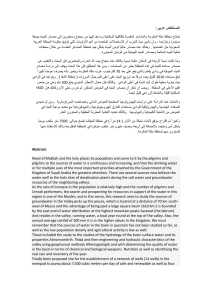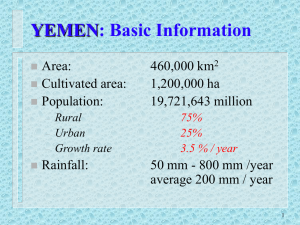30302.docx
advertisement
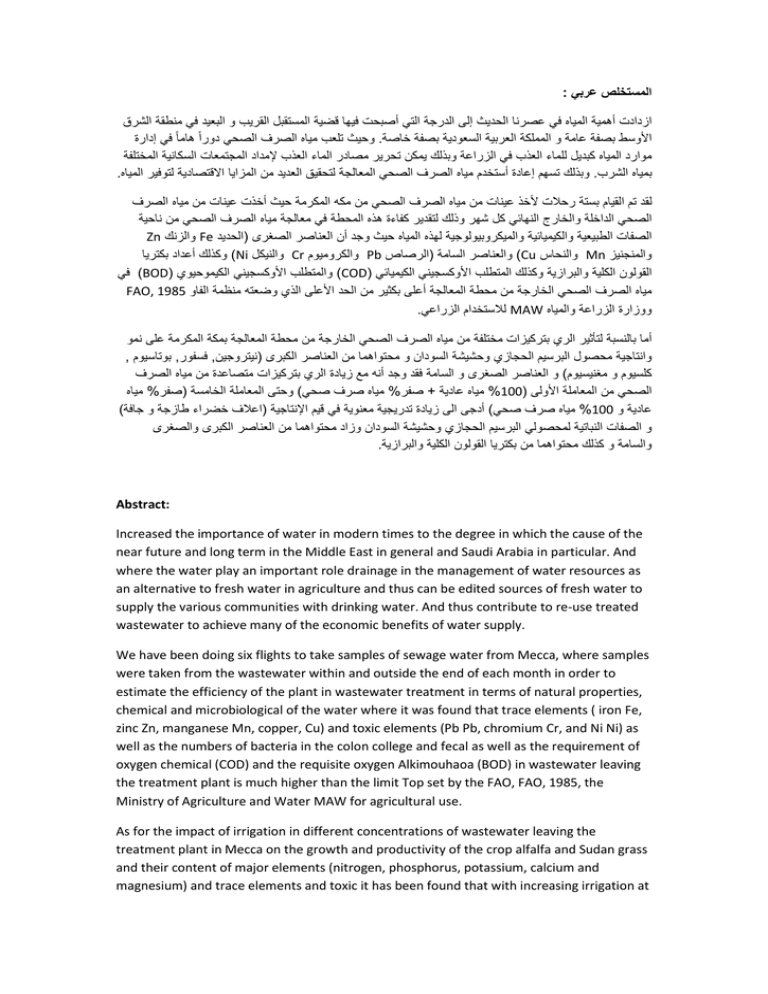
المستخلص عربي : ازدادت أهمية المياه في عصرنا الحديث إلى الدرجة التي أصبحت فيها قضية المستقبل القريب و البعيد في منطقة الشرق األوسط بصفة عامة و المملكة العربية السعودية بصفة خاصة .وحيث تلعب مياه الصرف الصحي دورا هاما في إدارة موارد المياه كبديل للماء العذب في الزراعة وبذلك يمكن تحرير مصادر الماء العذب إلمداد المجتمعات السكانية المختلفة بمياه الشرب .وبذلك تسهم إعادة أستخدم مياه الصرف الصحي المعالجة لتحقيق العديد من المزايا االقتصادية لتوفير المياه. لقد تم القيام بستة رحالت ألخذ عينات من مياه الصرف الصحي من مكه المكرمة حيث أخذت عينات من مياه الصرف الصحي الداخلة والخارج النهائي كل شهر وذلك لتقدير كفاءة هذه المحطة في معالجة مياه الصرف الصحي من ناحية الصفات الطبيعية والكيميائية والميكروبيولوجية لهذه المياه حيث وجد أن العناصر الصغرى (الحديد Feوالزنك Zn والمنجنيز Mnوالنحاس )Cuوالعناصر السامة (الرصاص Pbوالكروميوم Crوالنيكل )Niوكذلك أعداد بكتريا القولون الكلية والبرازية وكذلك المتطلب األوكسجيني الكيميائي ( )CODوالمتطلب األوكسجيني الكيموحيوي ( )BODفي مياه الصرف الصحي الخارجة من محطة المعالجة أعلى بكثير من الحد األعلى الذي وضعته منظمة الفاو FAO, 1985 ووزارة الزراعة والمياه MAWلالستخدام الزراعي. أما بالنسبة لتأثير الري بتركيزات مختلفة من مياه الصرف الصحي الخارجة من محطة المعالجة بمكة المكرمة على نمو وانتاجية محصول البرسيم الحجازي وحشيشة السودان و محتواهما من العناصر الكبرى (نيتروجين ,فسفور ,بوتاسيوم , كلسيوم و مغنيسيوم) و العناصر الصغرى و السامة فقد وجد أنه مع زيادة الري بتركيزات متصاعدة من مياه الصرف الصحي من المعاملة األولى ( %100مياه عادية +صفر %مياه صرف صحي) وحتى المعاملة الخامسة (صفر %مياه عادية و %100مياه صرف صحي) أدجى الى زيادة تدريجية معنوية في قيم اإلنتاجية (اعالف خضراء طازجة و جافة) و الصفات النباتية لمحصولي البرسيم الحجازي وحشيشة السودان وزاد محتواهما من العناصر الكبرى والصغرى والسامة و كذلك محتواهما من بكتريا القولون الكلية والبرازية. Abstract: Increased the importance of water in modern times to the degree in which the cause of the near future and long term in the Middle East in general and Saudi Arabia in particular. And where the water play an important role drainage in the management of water resources as an alternative to fresh water in agriculture and thus can be edited sources of fresh water to supply the various communities with drinking water. And thus contribute to re-use treated wastewater to achieve many of the economic benefits of water supply. We have been doing six flights to take samples of sewage water from Mecca, where samples were taken from the wastewater within and outside the end of each month in order to estimate the efficiency of the plant in wastewater treatment in terms of natural properties, chemical and microbiological of the water where it was found that trace elements ( iron Fe, zinc Zn, manganese Mn, copper, Cu) and toxic elements (Pb Pb, chromium Cr, and Ni Ni) as well as the numbers of bacteria in the colon college and fecal as well as the requirement of oxygen chemical (COD) and the requisite oxygen Alkimouhaoa (BOD) in wastewater leaving the treatment plant is much higher than the limit Top set by the FAO, FAO, 1985, the Ministry of Agriculture and Water MAW for agricultural use. As for the impact of irrigation in different concentrations of wastewater leaving the treatment plant in Mecca on the growth and productivity of the crop alfalfa and Sudan grass and their content of major elements (nitrogen, phosphorus, potassium, calcium and magnesium) and trace elements and toxic it has been found that with increasing irrigation at concentrations increasing from sewage treatment first (100% ordinary water + zero% sewage) and even treatment of the Fifth (zero% ordinary water and 100% wastewater) Adjei to a gradual increase morale in the values of productivity (green feed and fresh dry) and characteristics of the crop plant alfalfa and Sudan grass and increased their content of major and minor elements and toxic as well as their content of bacteria in the colon of fecal and total.
